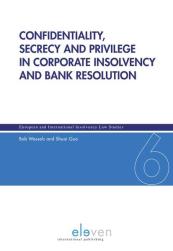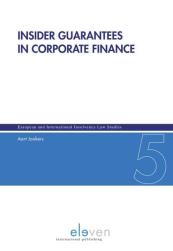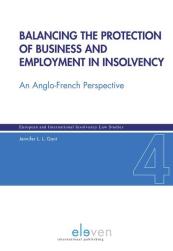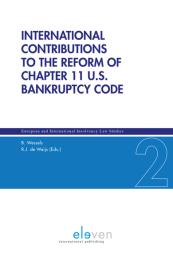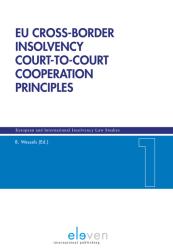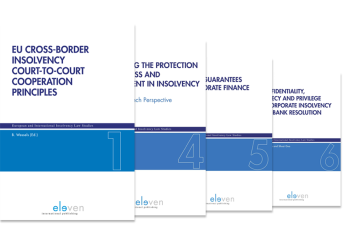
European and International Insolvency Law Studies
This series is an important source of information for both practitioners, such as lawyers, judges and policy makers in governments and international organizations, and scholars involved in the practice and study of insolvency law.
Insolvency law is understood broadly. It encompasses first of all the different rescue, reorganization and liquidation procedures, as well as debt relief procedures for natural persons. It furthermore includes the field of security rights, both real security rights and personal securities, and also corporate law in as far as it deals with issues such as limited liability, veil piercing and directors’ liability and the clash between shareholder rights and creditors’ rights.
Insolvency law has long been thought to be too difficult to harmonize at a European level. Even in the field of international private law, insolvency has been lagging behind company law and private law for decades. This position has changed drastically in recent years. With the enactment of the European Insolvency Regulation and its revision, the European Commission’s recommendation for harmonized European insolvency law and the creation of the Banking Union with rules on bank recovery and resolution, insolvency law has taken centre stage at the legislative efforts of the European Union. In addition, legislative changes at a national level in many European countries have led to a convergence of insolvency law systems through a process of competition and mutual inspiration. Combined with a boom in cross-border insolvency cases and an ever expanding body of European and national case law there is now a distinct field of European insolvency law. The further growth of European insolvency law does not take place in isolation; instead it is influenced by both non-European legal systems, most notably the US, and by global initiatives, such as those of UNCITRAL. This series seeks to contribute to the further development of European insolvency law in a global economy and provides a forum for debate and reflection on this process.
Series editors: Professor R.J. de Weijs & A.M. Verweij LL.M.



